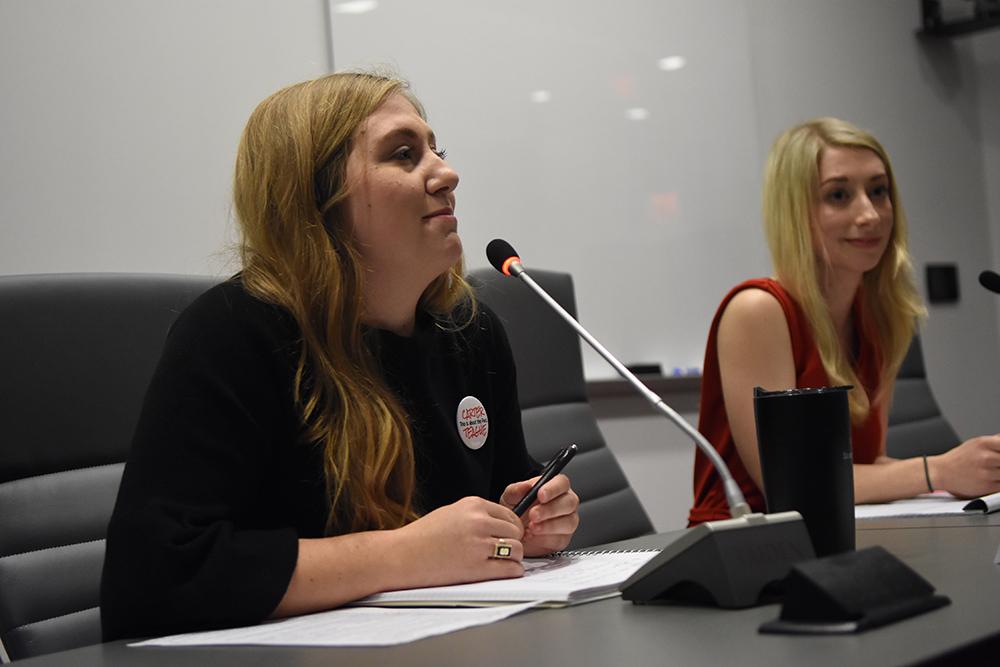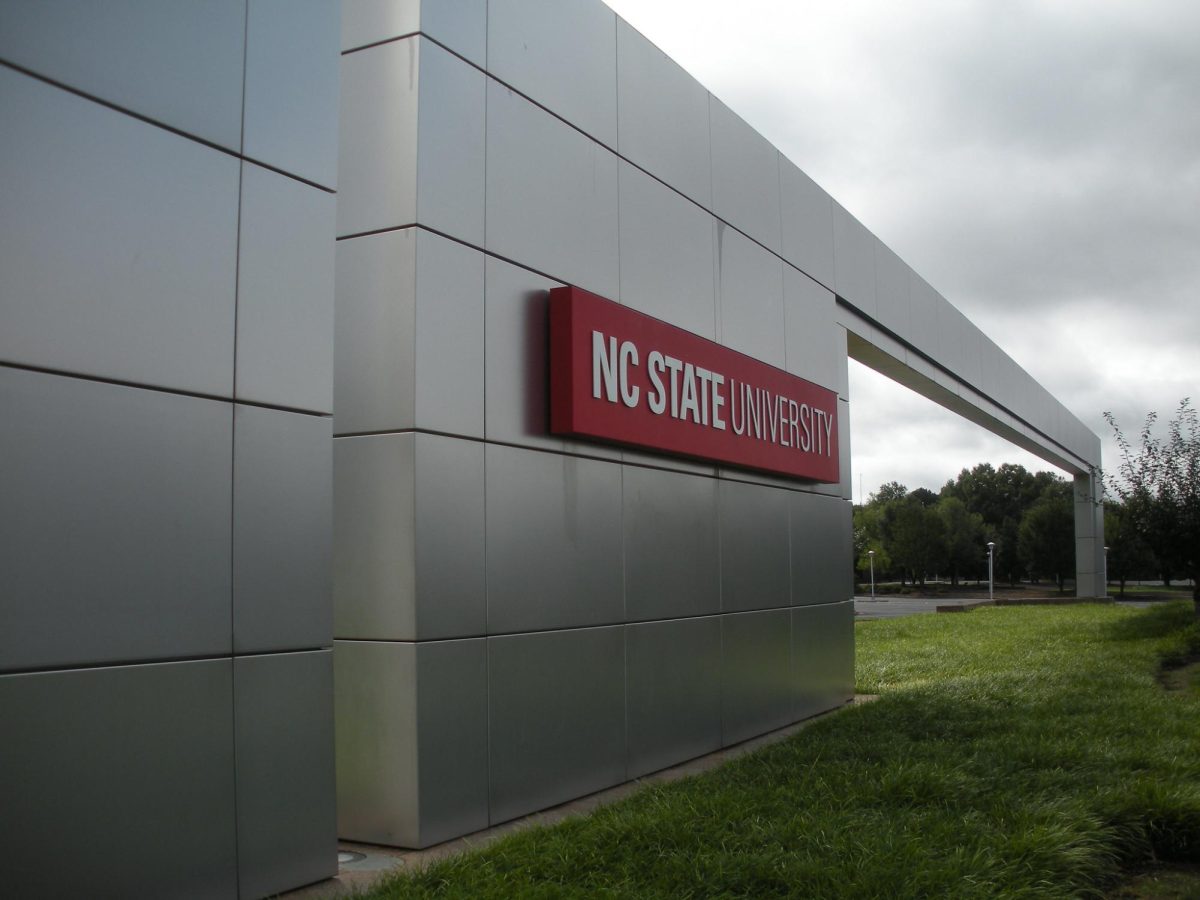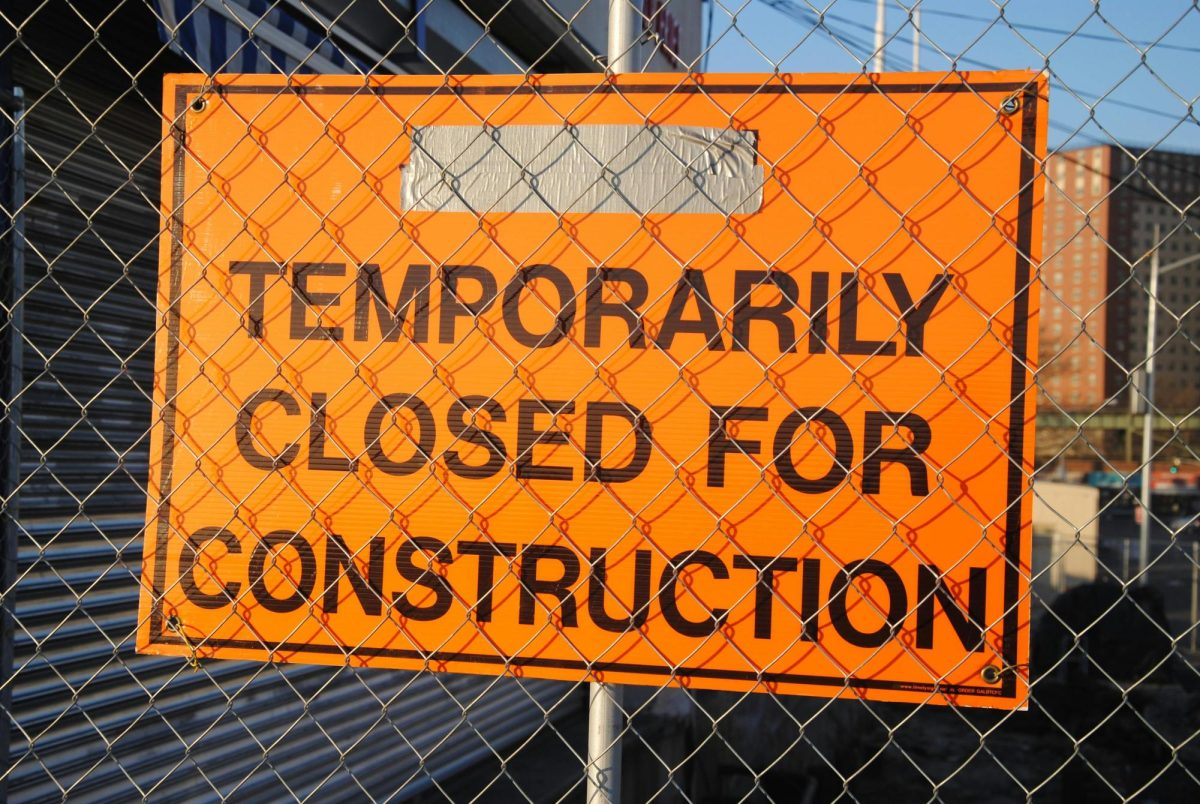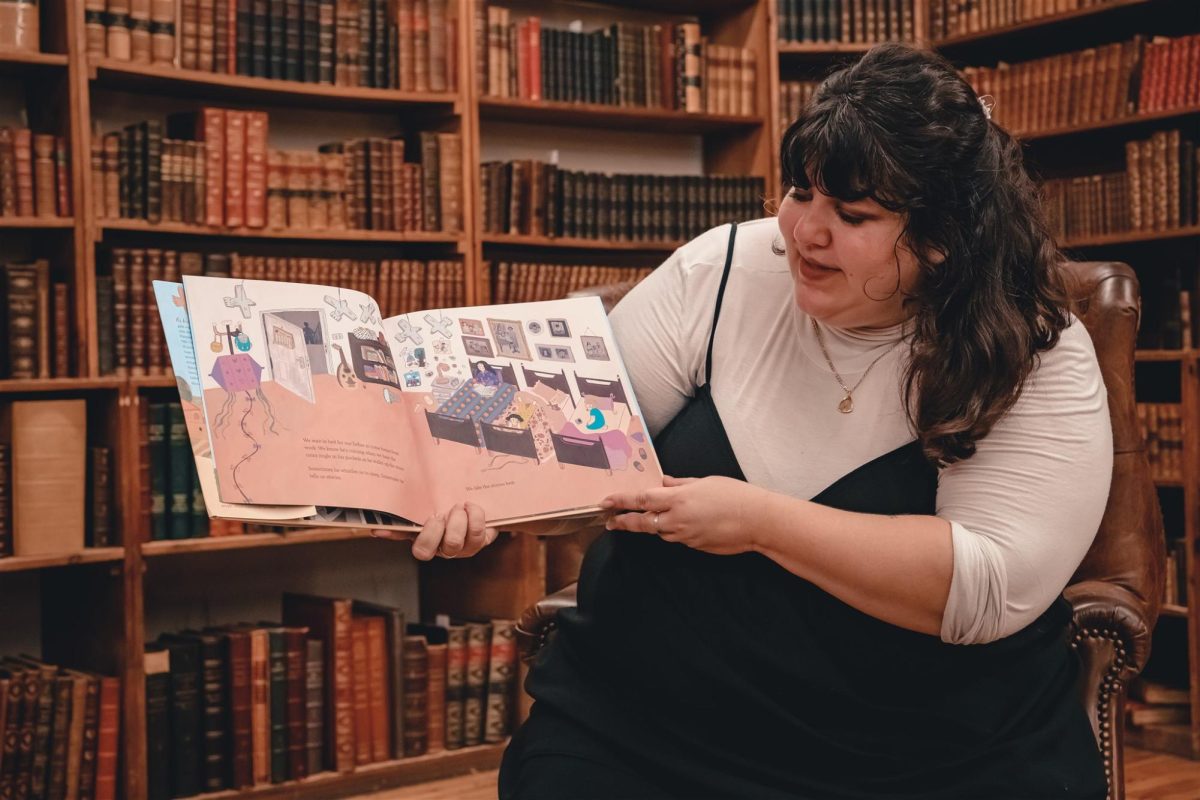Sindy Huang/Nubian Message
Student body president candidate Emma Carter, a third-year studying sociology and international studies, talks at the student government election debate on Thursday, Feb. 28, 2019, in the Senate Chambers in Talley Student Union.
Jalen Rose | Staff Writer
On Feb. 28, Student Media hosted the Student Body President debate. This year, there are two presidential candidates, Emma Carter, a third-year studying sociology and international relations, and Alex Obiol, a third-year studying textile engineering.
Carter’s vice-presidential candidate is Nicole Teague, a third-year studying business administration. Obiol’s vice-presidential candidate is Lexie Malico, a third-year PhD student studying chemistry.
There were two debates—one between the vice-presidential candidates and the other between the presidential candidates. Each debate consisted of two rounds. The first round involved general questions both candidates were given the opportunity to answer. The second round involved candidate-specific questions.
The vice-presidential candidates discussed topics revolving around Student Government (SG) and the future of NC State’s administration.
When asked what they believe to be the biggest challenge SG faces, the vice-presidential candidates held different beliefs.
“Students aren’t always aware of what SG is doing, is capable of doing and not capable of doing,” Malico said. “I think it’s important for us to show students these things.”
Teague believed the biggest challenge moving forward is the SG’s relationship with the NC State administration.
“Fixing the relationship with administration would be beneficial in the long run,” Teague said. “The administration is a stellar resource and we should be promoting more collaboration between them and Student Government.”
When asked about some policies she hopes to implement into campus policies, Teague briefly referred to the Trans-Inclusive Syllabi Clause. The clause protects transgender persons from persecution and emphasizes the importance of pronouns.
“Every human should be accounted for,” said Teague. “Trans students have the right to be addressed by their proper pronouns.”
The clause would not only affect students, but staff members as well.
When asked about one of her initiatives, Malico elaborated her Grad Student Bill of Rights. “As a grad student, I can confirm that we do not get paid a living wage. Some have to pick between eating and paying the electric bill,” said Malico.
The bill would include a maximum 60-hour work week, the right to switch advisors without prejudice, a clear description of a graduate student’s role on campus, and other policies that would address problems many grad students face.
The presidential candidate debate consisted of questions addressing sexual assault on campus, accessibility on campus and diversity on campus.
The first question asked the candidates what steps they would take to combat sexual assault on campus.
“The first step is stopping the stigma of sexual assault. We need to address why it happens and who it happens to,” Obiol said.
“Our first step would definitely be education,” Carter said. “We can achieve this by hosting events that address this problem and increase the amount of offered perspectives.”
When asked how they both planned on addressing accessibility on campus, both focused on different aspects of accessibility.
Carter centered her answer around the issues facing physical/mobile accessibility. “We will host town halls and workshops to address this issue,” said Carter.
Obiol centered her answer around financial accessibility. “We need to make applying to the university accessible. Application fees can deter prospective students,” said Obiol.
When asked to name one point from their opponent’s platform that they disagree with, the candidates touched on the way their opponent plans to address the issues within SG.
“My opponent’s platform focuses on direct departments,” Carter said, “What will be done externally outside of these departments? How will they increase student involvement?”
“I don’t believe my opponent’s platform focuses enough on these departments. The specificity in each department is how cabinet is run,” Obiol said. “There are these broad ideas, but she doesn’t specify who is going to do what.”
For their closing statements, Carter reminded the audience that her platform is for the Pack. This includes accessibility, inclusion, collaboration, allyship and sustainability. Obiol wanted the audience to know that she has been advocating for students since the beginning of her tenure in SG.







